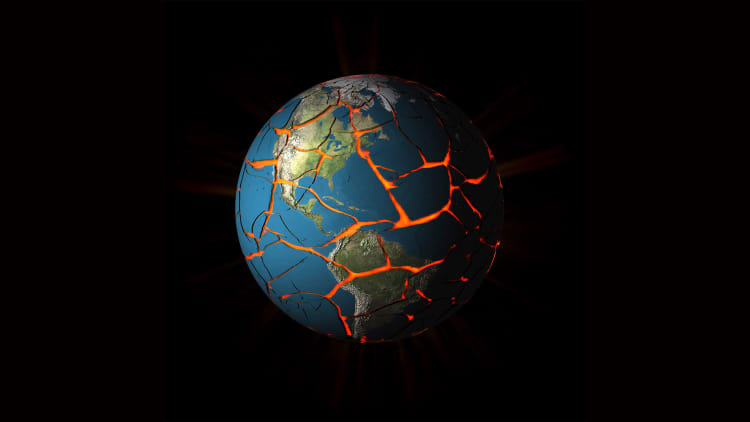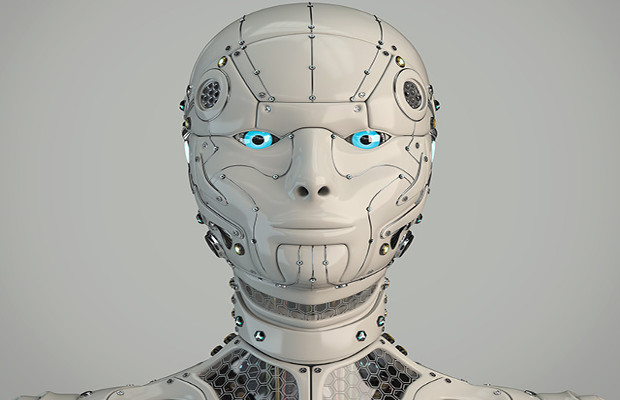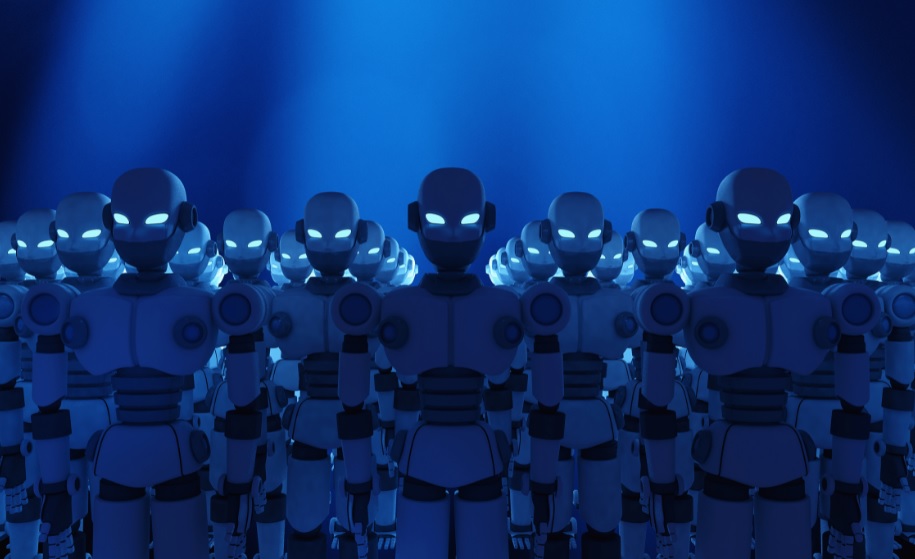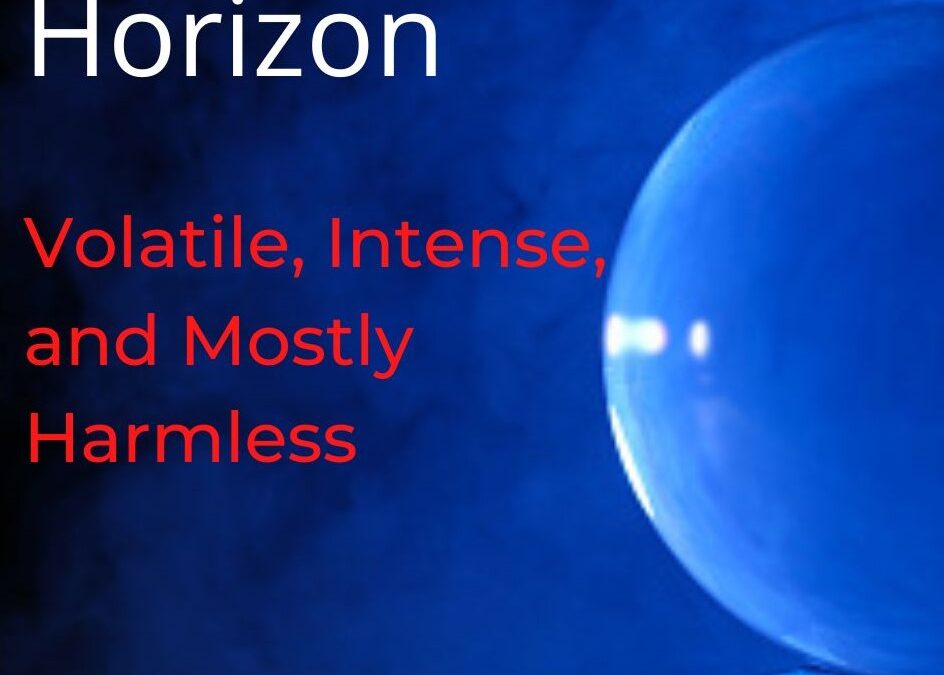
by Nicholas Mitsakos | Book Chapter, Globalization, Innovation, Public Policy, Technology, Writing and Podcasts
The paranoia is building. From the CHIPS Act to proposals for absurdly high tariffs (60% on goods from China isn’t going to help anyone) to banning TikTok, the world is on the verge of reversing decades of progress and exchanging real progress for delusionary gains.
Efforts to localize production and economic development with vast government subsidies are being proposed or enacted in the United States, the EU, China, India, and any other economic center that can think of it.
Hiding behind walls has never worked and makes life worse for everyone.

by Nicholas Mitsakos | Artificial Intelligence, Book Chapter, drug discovery, Green Energy, Innovation, Public Policy, Science, Technology, Transformative businesses, Writing and Podcasts
The era of artificial intelligence is here, and it’s generating despair and fear over the loss of control and the worry that artificial intelligence is about to unleash killer robots and enslave humanity. Perhaps…or, something else. Artificial intelligence will improve lives and generate greater access to education, improve healthcare, and advance climate science. Among many other improvements, AI’s benefits greatly outweigh its costs. AI has its costs since everything comes with a price (there are always both sides to the ledger), but the extraordinary benefits that artificial intelligence can unleash are worth the effort. Don’t slow down, pause, or restrict research, development, and AI applications. Prometheus gave the world fire and while we can still cause great harm, it was among the single greatest advancements for humankind. Artificial intelligence can be the same thing for our modern-day recipients of fire from the gods. But, we can’t be naïve. We can still burn the earth down if we are not careful. AI will not destroy the world – and is more likely to save it. I’s trajectory points towards a future where it not only enhances technological capabilities but also enriches human lives. Its evolving role will be characterized by a synergy between human and artificial intelligence, propelling societal progress and opening new frontiers of innovation and discovery is not just a technological advancement; it’s a catalyst for a new era of human endeavor. Its impact is vast, touching every aspect of our lives and work. As AI continues to evolve, its role in shaping our society and driving innovation will only become more significant, opening new horizons for growth, creativity, and human potential.

by Nicholas Mitsakos | Economy, Globalization, Innovation, Public Policy, Writing and Podcasts
Open markets, free global trade, and limited state interference lead to greater shared prosperity. Heavy-handed Industrial policy and state intervention impede progress. It’s the economy and inequality, trade imbalances, are not what drive shared global wealth. Industrial policy, restricted trade, government subsidy, and overall intervention are challenging to get right, and hoping to achieve multiple goals simultaneously. One subsidy does not tackle climate change, boost industrial and economic growth, or enhance security. It is bound to fail. Time to revisit how things actually work through incentives to innovate, sensible economic models, prosperity, and wealth creation. No other mechanisms drive change or address the world’s most critical issues.

by Nicholas Mitsakos | Artificial Intelligence, Innovation, Public Policy, Science, Technology, Writing and Podcasts
Stunning capabilities are emerging from large language models like GPT 4 that, until very recently, were thought to be only theoretical. We could never have the data sets or the processing power to generate real and usable results. Well, all that has changed – rather suddenly.
But is it time for the torches and pitchforks? What are the serious risks that accompany this technology?
There will be good and bad, like every new era. Will it be the Middle Ages all over again and we’ll experience The Plague before the Renaissance, or will it be more balanced and reasonable? There are good, bad, and many things in between whenever humanity advances.
Let it happen. Put down the pitchforks.

by Nicholas Mitsakos | Book Chapter, China, Economy, Globalization, Public Policy, Trade, Transformative businesses, Writing and Podcasts
Isolationism, fragmentation, and pessimism always fail. Globalization has been everyone’s favorite punching bag for a while. It is hard to feel optimistic about its prospects. However, globalization has a better future. If you are a fan of globalization, cooperation, and comparative advantage, the last decade has been extremely challenging. Ten years ago was a time of optimism on a global scale. However, economic and geopolitical forces have combined to add friction and fragmentation to global exchange. The benefits are now even greater and with everyone’s self-interest and mutual benefit, this geopolitical stalemate will pass – more quickly than is commonly thought today. Cooperation, integration, and mutual benefit win in the end. It is a time to be optimistic once again.

by Nicholas Mitsakos | Artificial Intelligence, Biotechnology, Book Chapter, drug discovery, Green Energy, Health Care, Innovation, Public Policy, Science, Technology, Transformative businesses, Writing and Podcasts
Our most intractable problems cannot be solved with behavior modification, conservation, or our existing technology, regardless of its advanced or widespread applications. Only new knowledge creating innovative solutions can address our most intractable problems. This can only be achieved through basic scientific discoveries and then combining these discoveries with enterprise-based innovation, commercial discipline, and competition. Innovation, creativity, and competitive dynamics create the most effective innovations, the best solutions, and the most sustainable companies. Developing the best public policy as well as the best structure to enable innovative and creative solutions, as well as the economic incentive to scale these opportunities and make them economically sustainable. Central planning, bureaucratic industrial policy, government-led economic management, and dictatorial focus have always failed, and always will.

by Nicholas Mitsakos | Book, Book Chapter, Economy, Innovation, Investment Principles, Public Policy, Science, Technology, Trade, Writing and Podcasts
Zero-sum thinking has begun. Despite comparative advantage, mutual cooperation, and specialization proving indisputably more beneficial than any other approach to economic interaction, this ideal is under threat. Rules and norms for economic integration lifted hundreds of millions of people out of poverty, created an order-of-magnitude increase in the average wealth of the Western population, and benefited countless hundreds of millions enabling a way of life otherwise unimaginable post-World War II. Now that system is under threat as developed countries subsidize alternative energy, attract manufacturing via expensive subsidies, and restrict the flow of goods and capital. Mutual benefit is out; national gain is now the highest priority. In other words, stupidity and zero-sum thinking have taken over. A handful of bureaucrats, regardless of how brilliant each may be, can never equal the mind of the market. Management and control usually spell disaster eventually. Managed focus on technological development for products and services the central government believes have greater substantial benefit to the overall society may not be calamitous, but the law of unintended consequences has not been repealed. It will be inefficient, substandard, and create potentially dangerous side effects. Innovation, creative freedom, and unstructured thought are essential components to the development of any technology of substance and disruptive benefit.

by Nicholas Mitsakos | Artificial Intelligence, Biotechnology, Book, China, commodities, Digital Assets, Economy, Financial Technology, Public Policy, Russia, Technology, Transformative businesses, Writing and Podcasts
This book explores the next decade’s more frequent and intense economic, geopolitical, fiscal, and market volatility, technological innovation, disruption, and hype.
Long-term opportunity exists, and this book uses a 10-year horizon as a surrogate for a long-term perspective. Some of the world’s most important industries are being disrupted, especially finance via digital assets and Blockchain-based businesses, life sciences via gene editing, DNA sequencing, and CRISPR, and communications via advanced wireless data networks, software technologies including artificial intelligence, and new interactive platforms such as the Metaverse.

by Nicholas Mitsakos | Artificial Intelligence, Economy, Green Energy, Public Policy, Technology, uncertainty, Writing and Podcasts
The rewards for innovative success have become enormous and unpalatable, especially among the five technological giants (Amazon, Apple, Facebook, Google, and Microsoft) forcing these firms to spend absurd amounts of money on lobbying in Washington DC. It’s an expensive and wasteful distraction, but essential in this brave new world. If nothing else, it clogs innovation. It is to our detriment – and the world is literally burning while politicians fiddle – and even more disastrously – impede innovative activity. Applying friction to free thinking and new ideas never ends well.

by Nicholas Mitsakos | Artificial Intelligence, Biotechnology, Financial Technology, Green Energy, Health Care, Investments, Public Policy, Technology, Transformative businesses, Writing and Podcasts
Remarkable things can happen. Or not. Can we solve climate change, food shortage, limited healthcare, and other global stresses – all with TikTok videos? Innovation is unpredictable and astonishing – it can address the world’s most critical issues today, from hunger to efficient energy, to devastating diseases. It is also too often misguided, inefficient, and meaningless – creating nothing more than distractions and wastes of time cloaked in an image of technological wonder. Misguided and manipulative business plans sit alongside the groundbreaking disruptions that may address society’s most significant problems. We don’t have time. Even though there is no clear argument for resources going to a new video-sharing platform or immersive game, that is beside the point. Technology delivers something, nothing else can. It is the only way to find solutions to otherwise intractable and potentially devastating global crises. The freedom to pursue solutions is the essential first step. Letting the best people do their best is still the best policy. It will also generate the best outcome.

by Nicholas Mitsakos | Economy, Finance, Investment Principles, irrationality, Public Policy, uncertainty, Writing and Podcasts
Risk is higher. Markets are more unpredictable, and valuations more volatile. So, when anyone says “this time it’s different” it usually makes good sense to stop listening. However, these days the markets have given us more frequent and intense volatility. The NASDAQ is down almost 30% so far this year, and shocks from the pandemic, the Ukrainian war, massive central bank interest-rate maneuvers, and China’s zero-covid policy, are all ongoing inputs for turmoil that will continue for some time. Persistent uncertainty creates higher costs of capital and less affordability, weakening business investment, slowing GDP growth, and reducing investment returns. Hyperbolic “this time it’s different” statements are turning out to be true. This time days look darker, uncertainty greater, economic growth lower, vulnerability to additional shocks higher, and investors fear many more dark days to come. More frequent and intense volatility will not be calmed anytime soon. It really may be different this time.

by Nicholas Mitsakos | China, Investment Principles, Public Policy, Russia, The Market, Writing and Podcasts
While most of Europe and the United States suffer sweltering heat, darkening economic skies and bitter winter of discontent are looming. Threats to the world economy are chilling. Rising interest rates are slowing activity for discretionary spending while rising prices for nondiscretionary spending are also slowing economic activity. It would be miraculous if the compounding of both effects would not lead to a recession in both Europe and the US. China’s growth has stalled. The Ukraine conflict will ultimately resolve itself to the West’s dramatic disadvantage and the West seems to be willing to let it happen – much to each economy’s long-term disadvantage. Don’t count on anything miraculous.












